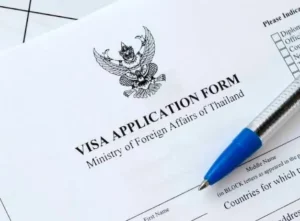In civil cases, damages are awarded to individuals who are harmed by someone else’s wrongful act. These acts could include breaching a contract (for example, not completing a job or not paying for goods), cheating and fraud, or defamation.
The basic provisions governing criminal offenses can be found in Thailand’s Penal Code and Criminal Procedure Code. The process of a criminal case typically begins when a public prosecutor lodges a complaint.
Dispute Resolution
Thailand Dispute resolution is the process of resolving legal disputes through the courts. Litigation is the traditional method of resolving disputes, but an increasing number of people are choosing out-of-court dispute resolution options in Thailand.
Civil cases in Thailand commonly involve property and commercial disputes, employment actions, divorces, and torts (wrongful acts). In some cases, the parties may agree to have their disputes resolved through arbitration. Arbitration is a dispute settlement mechanism that can speed up the case-resolution process and help parties avoid costly court proceedings.
In addition to arbitration, there are several other out-of-court dispute resolution methods in Thailand that can be used to resolve civil cases, including mediation and conciliation. In the case of arbitration, both parties are given a list of three potential arbitrators to choose from. They must remove the names of the arbitrators they do not prefer and add the names of those they want, and the Thai arbitration institute will then select the arbitrator for them.
The legal system in Thailand is primarily adversarial, but class action lawsuits and other special cases may operate under an inquisitorial regime. Unlike most other countries, there is no mandatory discovery procedure in Thailand, so parties must request subpoenas and independently investigate evidence. If a party wishes to call witnesses who are located outside of the country, the witness can testify via video conference.
Trials
The criminal justice system in Thailand has a reputation for being difficult to navigate, particularly for foreign defendants. There is no jury system and a judge presiding over the case is responsible for determining guilt or innocence as well as deciding sentencing. A guilty verdict could result in prison time and forfeiture of assets.
A criminal case in Thailand must commence at a Court of First Instance, and all proceedings are conducted in the Thai language. Defendants have the right to legal assistance, private meetings with their attorneys, and the ability to examine trial evidence. The law prohibits plea bargaining and pleading guilty to a lesser charge. However, the judge may recommend a reduced punishment. A conviction under a criminal offense also carries the risk of deportation for those who have overstayed their visa.
Due to differences in the judicial system, it is important that anyone who is facing criminal charges in Thailand seek legal counsel as soon as possible. An experienced lawyer can help navigate complex case details and laws as well as prepare the burden of proof required to prove innocence or guilt. A qualified lawyer can also provide advice on alternative dispute resolution methods like mediation and arbitration. In addition, they can help with the complexities of pre-trial detention, which includes limited bail and a long period of time when suspects are held without formal charges.
Pleading Guilty or Innocent
Like in most jurisdictions, the process of bringing civil or criminal cases to court can be complicated and lengthy. Having experienced legal counsel with in-depth knowledge of Thai law and court procedures will ensure that your case is properly handled from start to finish. A skilled lawyer will be able to anticipate the actions of the opposing counsel and prepare a strong defense from the beginning.
In Thailand, civil litigation is generally initiated with the issuance of a lawsuit by either the claimant or the defendant. The court of first instance is the Court of Justice, unless the subject matter of the dispute falls within the scope of jurisdiction of a more specialised court such as the Central Tax Court, Central Labour Court or Central Bankruptcy Court.
The judicial system in Thailand does not use juries and a judge will decide the outcome of a trial based on evidence presented by the parties. Judgments in Thai courts are not binding and Supreme Court judgments are considered persuasive rather than binding.
It is important for claimants to understand that, if they are unable to afford the cost of litigation in the Courts of Thailand, they may be able to apply to receive financial assistance from the Lawyers Council of Thailand or seek out contingency fee arrangements with local lawyers. In addition, many courts have volunteer lawyers who provide pro bono advice or representation for claimants who cannot afford to pay their court fees.
Criminal Defense
Like any other jurisdiction, criminal cases in Thailand start with an accusation and then the police and prosecution build their case to prove the defendant committed a crime. This is why it’s so important to have a good Thai criminal defense lawyer by your side.
The most important thing to remember in a criminal case is that you are innocent until proven guilty. This is guaranteed in the Thai Constitution under Section 39. This is a fundamental principle that should help give defendants peace of mind and confidence in the justice system in Thailand.
Another important aspect of criminal law in Thailand is that it follows a statute-based framework rather than relying on judicial interpretations of existing case laws, as common in Western jurisdictions. This can be a big difference for individuals who are used to the jury trial process. It can also mean that judges have more leeway to decide guilt or innocence and to determine appropriate sentences.
A well-trained and experienced Thai criminal defense attorney can work to prevent surprises at every step of the process. They should be able to anticipate the moves of opposing counsel and help the defendant establish a strong foundation for their defense from the outset. They can also assist in the appeals process, which is often necessary to overturn a conviction or reduce a sentence.










